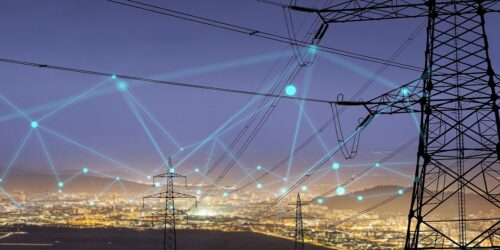The government has devised a concrete strategy to ensure access to affordable, reliable, sustainable and indigenous electricity for all by 2030.
According to the three-year performance report of the government released on Thursday, it inherited multiple challenges in the power sector, including system constraints, fast rising circular debt, inefficiencies driven by corruption, theft, growing burden of tariff non-rationalisation and the lack of policy decisions leading towards shattering of confidence of foreign investors.
Under the government’s vision, the most efficient and consumer-centric power generation, transmission and distribution system was being developed.
Renewable energy share in the total energy mix was being enhanced to 20 per cent by 2025 and 30 per cent by 2030.
Similarly, the strategy aimed at reducing line losses to the permissible limit, continue the ongoing country-wide campaign against theft of electricity and recovery campaign against the current and dead defaulters.
Currently, the Private Power Infrastructure Board (PPIB) is handling the portfolio of 22 multiple fuel-based (hydro, Thar, coal, imported coal, RLNG) IPPs with the cumulative capacity of 12,028MW worth multi-billion dollars.
These projects were at different stages of implementation, which included six Thar coal-based projects (4,290MW), 14 hydro-based projects (6,175MW), one each imported coal (300MW) and RLNG project (1,263MW).
Similarly, for the power evacuation from the China-Pakistan Economic Corridor power projects and strengthening transmission line Matiari-Lahore transmission project (having 4,000MW load) had already been completed.
During 2020/21, the Alternative Energy Development Board (AEDB) facilitated four solar power projects of 250MW cumulative capacity to achieve the financial closing of the projects. These solar power projects were now under construction.
An anti-theft campaign was launched on the directives of the prime minister in October 2018 across Pakistan with the main slogan of zero tolerance for over-billing and zero tolerance for corruption.
As per the latest data, a total of 102,823 first information reports have been registered, while 13,515 persons involved in theft have been arrested.
An amount of Rs5.295 billion has been recovered from the anti-theft campaign.
Massive system upgradation has resulted in transmitting 24,200MW record deliveries, which has been a prime factor for uninterrupted electricity supply to the consumers across-the-board.
The industrial consumers were also getting continuous power supply due to these efforts. The power sector has one of the most advanced complaint resolution systems linked via state-of-the-art technology with mobile application, web portal, telephone call and SMS.
In the centralised complaint management system, 2,592,355 complaints were received from July 1, 2018 to June 30, 2021. In response to it, 2,591,746 complaints were resolved.
The Power Division has made significant achievements in the removal of hazards from residential areas and has succeeded in removing 19,701 such hazards against 37,857 identified hazards.
The dedicated portal has been launched for the safety of employees and regular training is imparted to make the working environment safe for the workers.
A project of advanced metering infrastructure (AMI) was being launched in Lahore and Islamabad Electric Supply Companies (Lesco and Iesco) areas with the assistance of the Asian Development Bank worth $400 million.
To control power theft and check the menace of kundas, Pesco and Sepco have started installation of ABC cables, which are much more secure and effective against kundas.





